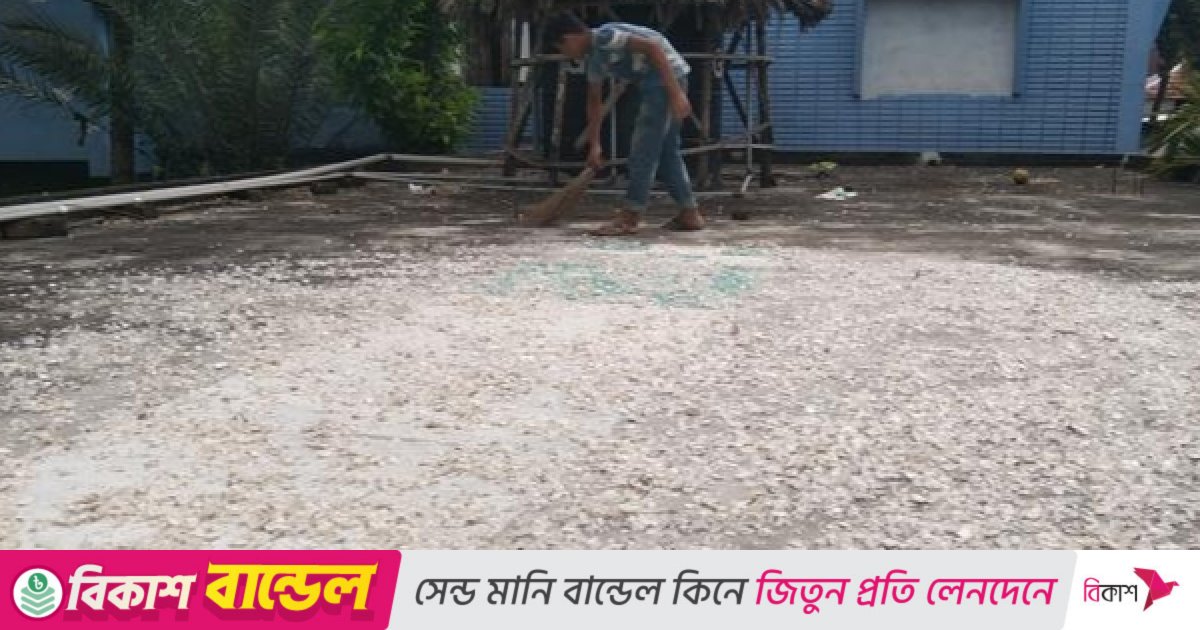Fish scales, once discarded as waste, have now become a significant source of foreign currency earnings in Khulna. Dried and processed from raw fish, the scales are now bringing in an annual income of around Tk3.5 crore.
More than 50 men and women from Moylapota Sandhya Bazar, Notun Bazar, Boro Bazar, Mokkhi Mosque area, Shantidham Mor, Khalishpur Bazar, and Keshab Chandra College Mor are now involved in cleaning and processing fish scales — earning a steady income and becoming self-reliant in Khulna city.
Rustam Ali, who works in the trade, said that he used to throw away the scales after cleaning fish. “For the last two to three years, I’ve been saving and drying them in the sun,” he said. “Buyers and traders from Chittagong now come to purchase the dried scales. We currently sell them for Tk55–60 per kg, though two years ago the price was Tk100–120. The wholesalers export them abroad.”
At Notun Bazar Launch Ghat, Munna said: “We collect around five to seven kilograms of fish scales daily. After drying and storing them for about 10–11 months, we can sell 10–12 maunds to traders at Tk1,200 per maund, which gives us extra income each month.”
Sohag, who works near the Pollimongol Secondary School, explained: “Wet scales can’t be stored because they attract insects. Some people buy them as plant fertilizer, but dried scales fetch a much better price.”
According to the Export Promotion Bureau’s Khulna office, between July 2024 and April 2025, fish scales worth $210,179 were exported to China, backed by seven official export certificates.
Professor Dr Shikdar Saiful Islam of the Fisheries and Marine Resource Technology Discipline, Khulna University, said fish scales are now used in a wide range of industries — including medical treatments such as wound healing, bone repair, tissue reconstruction, corneal regeneration, as well as in cosmetics, water purification, and electrochemical processes. Rich in protein, minerals, and organic compounds, they are also used in animal and fish feed production.
He added: “Nearly 90% of fish scales in Bangladesh are still wasted. With proper training, collection, and processing, many people could earn a livelihood from this sector. Establishing local fish scale processing industries would reduce import dependency and boost the national economy.”
Khulna District Fisheries Officer Md Badruzzaman confirmed that between July 2024 and 10 September 2025, a total of 533,340 kilograms of fish scales were exported, earning Tk3.41 crore — turning what was once waste into a remarkable source of income for local communities.



